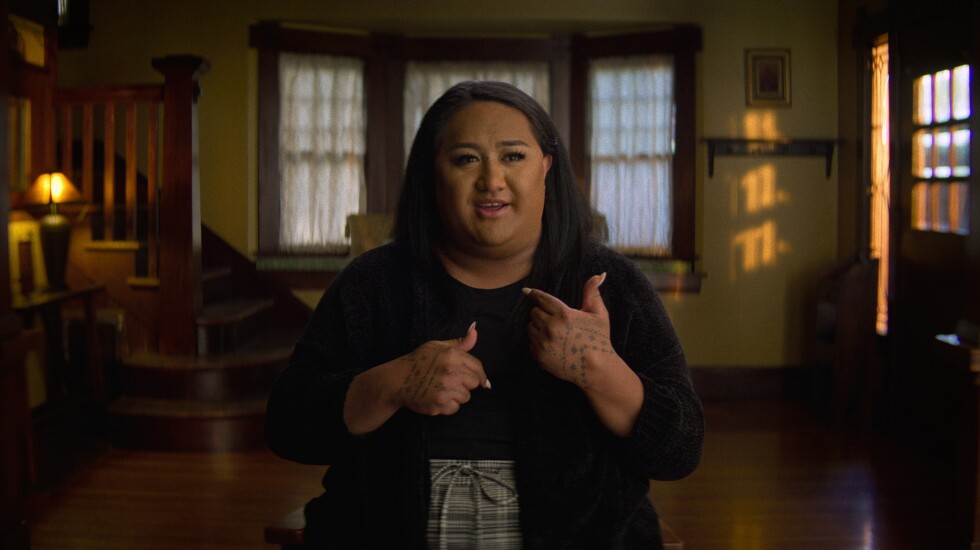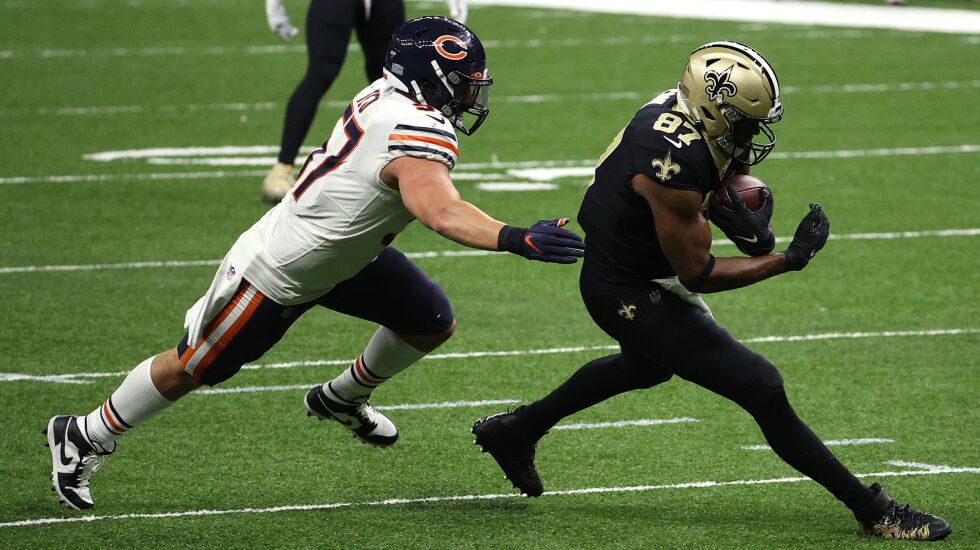
President Ronald Reagan’s first major public appearance outside of Washington, D.C., after he survived an assassination attempt in 1981 was at the University of Notre Dame’s commencement exercises—but rather than speak of policy issues, Reagan reminisced about filming “Knute Rockne, All American” some 40 years prior and talked of how he was inspired by the story of George Gipp, aka the Gipper, whom he played in the movie.
Only in America. Only at Notre Dame.
From Knute Rockne to the Gipper through “Rudy” and 11 national championships and seven Heisman Trophy winners and “Touchdown Jesus,” Notre Dame football is arguably the primary myth-making enterprise in all of college sports. And one of the greatest and most memorable fables came to fruition in 2012, when consensus All-American linebacker and Heisman Trophy finalist Manti Te’o led Notre Dame to the national championship game despite being grief-stricken over the deaths of his beloved grandmother and his girlfriend that September. A nation turned its eyes to South Bend, as Te’o racked up the accolades for his warrior greatness on the field and earned the admiration of millions for his bravery and candor as he spoke about persevering through tragedy.
And then, the bombshell we all remember. In one of the most stunning revelations in modern sports history, we learned Manti Te’o’s dead girlfriend wasn’t dead. Or his girlfriend. Or even real.
In the two-part documentary “Untold: The Girlfriend Who Didn’t Exist,” premiering Aug. 16 on Netflix, directors Ryan Duffy and Tony Vainuku wisely offer no commentary or judgment as they revisit this astonishing story a decade down the road. In journalistically sound fashion, they lay out the case in mostly chronological order and feature extensive, new interviews with Manti Te’o and his friends and family; the Deadpsin reporters who broke the story; Notre Dame’s athletic director, and Te’o’s catfisher, who was known as Ronaiah Tuiasosopo at the time but now identifies as a transgender woman named Naya.
After all these years, Te’o still comes across as genuinely baffled and emotionally bruised by the whole saga, while Tuiasosopo expresses remorse and offers a measure of explanation—and yet there’s never going to be a totally sufficient answer to the question of “Why?” Even Tuiasosopo doesn’t seem to fully grasp the motivation behind such an elaborate and deliberate deception and why it continued for so long.
“It was a black hole that consumed my life,” says Tuiasosopo. “I didn’t care who I was hurting.”
In Part One, “Untold” tells the parallel stories of the respective upbringings of Te’o and Tuiasosopo. “Discipline is a huge thing in Polynesian culture [and] in Christian belief [and] a big thing in sports,” says Te’o. “So there’s a lot of commonality in everything. … My dad asked me when I was 5 years old what I wanted to be, and I told him I wanted to be the best.”
Tuiasosopo speaks of growing up where “everything was centered around faith, around family, and football.” Tuiasosopo’s father played for USC, an uncle was on the Rams, and older cousins played for the 49ers and the Raiders. Sophomore year in high school, Tuiasosopo was a starting QB for the varsity, but says, “I hate football. I just wanted to play football out of obedience, and I wanted to make my dad happy.”

A few years later, Tuiasosopo invented the character of Lennay Kekua, a Stanford University student, and created an online profile using the photos of a girl with whom he had gone to high school.
“I truly believed in my heart, being a natural-born male, I could never be who I wanted [to be],” says Tuiasosopo, “so I created this whole fictional character, Lennay.”
Te’o became Facebook friends with Tuiasosopo, and by his junior year at Notre Dame, as he was becoming a “huge star,” as broadcaster Alex Flanagan recalls, he was frequently texting with Tuiasosopo and eventually even received a few voice messages, with Tuiasosopo affecting a credible female cadence. The online persona had become quite elaborate, with Tuiasosopo explaining, “You bring in whatever characters to maintain the validity of this whole person. I even made myself Lennay’s cousin.” So on the Facebook page for “Lennay,” the actual creator of Lennay was listed as Lennay’s cousin.
When Te’o demanded proof Lennay was real, Tuiasosopo contacted the woman whose photos he was using (she had no idea she was being used in the scam) and asked her to take a picture holding up a sign with a particular message, telling her it was to cheer up a sick friend.
In Part Two, we hear from the Deadspin duo who broke the story: Tim Burke and Jack Dickey. Acting on an anonymous tip, Burke did a deep search of records pertaining to Lennay Kekua and could find nothing outside of stories about Te’o. “She physically did not exist outside of being Manti Te’o’s dead girlfriend,” says Burke.
When Deadspin broke the story in January of 2013, it was with the intention of exposing ESPN and Sports Illustrated and other mainstream media for not doing their homework—but as Burke and Dickey acknowledge, they had zero control over the narrative once it was out, and things turned ugly, with rampant homophobic speculation that Te’o had masterminded the scheme to cover up being gay. One prominent publication listed Te’o alongside Tiger Woods and Lance Armstrong as the most hated athletes in the world. (It didn’t help Te’o that even after he realized he most likely was being conned, he continued to talk about losing Lennay during the buildup to the national championship game.)
Te’o told his story to Katie Couric. Tuiasosopo did a confessional interview with Dr. Phil. Teo’s stock fell in the NFL draft, and he was eventually chosen by the Chargers in the second round and had a journeyman career with San Diego, New Orleans and the Bears. Tuiasosopo moved to American Samoa and began transitioning.
“I still feel horrible,” says Tuiasosopo, “but ... I learned so much about who I am today … because of the lessons I learned through the life of Lennay.”

With years of heckling, cartoons, memes and social media taunts still ringing in his psyche, Te’o experienced numbing anxiety, and found help through therapy. He is married and has a child, and at the conclusion of “Untold,” he speaks with great passion about trying to rise above all the criticism. “I’ll take all this crap … so I can be an inspiration to [someone] who needs me to be.”
Hard to find fault with that narrative.







